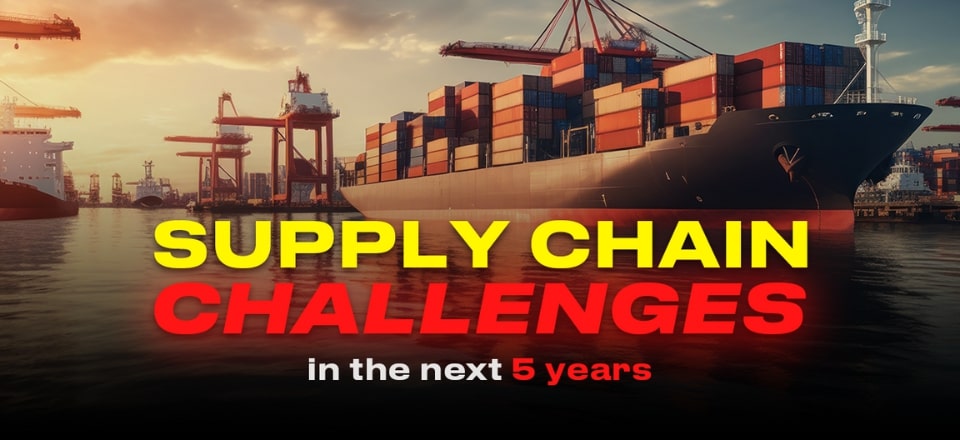Explore the evolving landscape of the supply chain—an industry marked by dynamic growth and relentless advancement. Ever wondered about the future trajectory of supply chain logistics, amidst today’s rapid evolution and innovation?
Curious about the challenges that could shape the industry over the next five years? Experience our in-depth discussion with Maria Villablanca as we delve into these anticipated challenges.
Watch the video below to learn more!
In a recent discussion, Maria Villa Blanca, a seasoned supply chain expert, shared her valuable insights on the significant supply chain challenges expected over the next five years.
Tackling Future Supply Chain Challenges with Maria Villa Blanca
Geopolitical Instability
Maria emphasized that geopolitical risks are among the most pressing supply chain challenges. Conflicts, such as wars in critical regions like the Middle East, can disrupt major trade routes like the Suez Canal, leading to increased transit times and costs. Additionally, political instability can force companies to find alternative sources for raw materials, further complicating supply chain operations and increasing expenses.
Navigating Regulatory Demands
Another significant challenge is navigating the complex landscape of regulatory compliance. With stricter regulations on carbon emissions and sustainability, supply chains need to be more transparent than ever. Companies must delve deeper into their supply networks to understand and manage their suppliers and their suppliers’ suppliers. This increased need for data transparency and visibility is essential to meet regulatory requirements and sustainability targets.
Embracing AI and Workforce Evolution
Generative AI is set to transform supply chain management, handling everything from data analysis and route optimization to decision-making and scenario planning. Maria pointed out that AI can take over repetitive tasks, allowing human workers to focus on strategic decisions. However, this technological shift brings its own set of challenges. Adapting to new technologies, managing decision-making processes, and responding to changing consumer behaviors are critical. Additionally, addressing the shortage of skilled workers in the supply chain sector is paramount. While AI can automate many functions, human expertise and judgment remain irreplaceable.
Addressing these supply chain challenges requires a comprehensive approach. Companies must embrace transparency, comply with evolving regulations, and integrate advanced technologies like generative AI while also adapting to workforce changes. Maria Villa Blanca emphasized that balancing technological advancements with human input is crucial for building resilient and efficient supply chains. Successfully navigating these challenges will determine the sustainability and success of supply chains in the years ahead.
Watch the video above for detailed discussion of the topic!
Related articles on this topic have appeared throughout our website, check them out:
- 9 Steps to Follow When Preparing for Supply Chain Project Management
- No Supply Chain Strategy? Here’s How to Develop One
- The 3 Pillars of Supply Chain Management (And Why Their Alignment Matters)
- How Artificial Intelligence is Boosting Supply Chain Performance
- You and Your Supply Chain Career
Editor’s Note: The content of this post was originally published on Logistics Bureau’s website dated April 03, 2024, under the title “Supply Chain Challenges in the Next 5 Years with Maria Villablanca“


